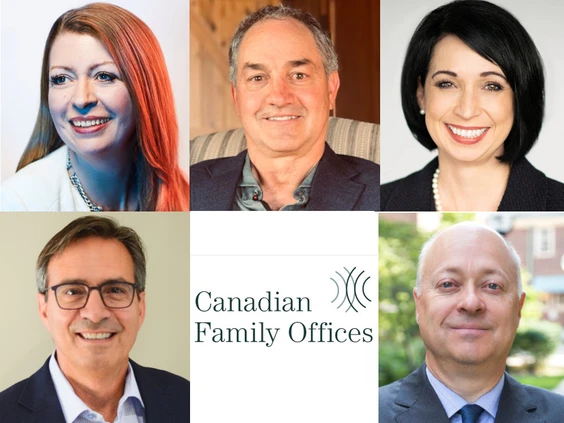Often working behind the scenes, they can coordinate health care at home or medical needs abroad
Originally published on Canadian Family Offices on Jul 08, 2021
Article written by Diane Peters on Canadian Family Offices.

A beloved family member has become ill and can’t dress herself each morning — a home caregiver must be hired. Someone in the family needs surgery, and it’s best offered south of the border, and they need help setting things up. A worrisome health condition in a family member means someone else needs to make financial decisions on his behalf.
These kinds of health issues are on the radar of family offices, which often step in to help.
“Health is one of the areas of vulnerability in a family,” says Danny Ritter, partner with Richter Family Office in Toronto. After all, health problems can affect almost every aspect of how an ultra-high-net-worth family runs.
While family offices in Canada seldom list their health-and-wellness services front and centre — the situation is different in the United States, where they are considered core services — most offer support when it’s needed.
“Affluent families don’t have different needs than average families,” says Carolyn Cole, founder of Cole & Associates, Family Office Administration Services, and Family 2 Family Capital Connection. She works in Vancouver and Toronto.
“What changes is the ability of individuals to access specialty services either within Canada or outside of Canada,” she says, noting that not all ultra-high-net-worth families wish to use private healthcare services.
Referrals from friends
That can range from seeing a private psychotherapist to seeking health services in other countries.
Families can find these services on their own, but sometimes doing so is not straightforward. Reaching out to friends or business colleagues for referrals could compromise their privacy, often at a moment when they need it most — especially if the family runs a successful enterprise. A family office can more discreetly connect to services and do so quickly.
“We don’t believe that all services will fit all families, and therefore we go out and find what might fit a family’s specific medical needs,” says Cole.
Ritter, meanwhile, says his firm will connect clients to what they need in the moment, and most often that’s home health services. Once, he helped secure comprehensive medical insurance for one family that came in handy when they began accessing a medical treatment south of the border that wasn’t approved in Canada.
“That insurance paid for it. It’s not that they could not afford it,” he says, “but it changed the dynamics of the situation. It allowed the spouse to attend all the treatments.”
Timely care
When families do reach out for private services, there’s an expectation that, when you pay out of pocket, you receive excellent customer service, timely care and a consideration of privacy.
“They want to have a response and they don’t want to wait. Part of what accessing private health services is about is you can make one phone call to access different services,” says Danielle Pollack, president and founder of Equinoxe, a health services company based in Montreal.
“If grandma or grandpa goes off to the Mayo Clinic, who pays for that? Why can’t everyone else in the family get that?”
Carolyn Cole, family advisor
Pollack says that’s why private healthcare clinics offering treatments and diagnostic services have become so popular. Not only do they give clients access to tests such as MRIs and specialty blood tests to detect early illness, but they schedule everything at once — compared to accessing the regular healthcare system where people have to get a mammogram in one place on one day and have blood taken somewhere else on another.
“You can get it all done in three hours,” says Pollack.
Ritter says privacy and pride tend to be priorities for wealthy families seeking health support.
“They’ll often use their second homes for privacy,” says Ritter. Getting services such as physiotherapy at that second home — which is sometimes across an international border — or quietly at home in Canada is often preferred to being seen coming out of a clinic with a walker.
Cole says family offices can also help with negotiating delicate issues such as family fairness and access to private health services. “If grandma or grandpa goes off to the Mayo Clinic, who pays for that? Why can’t everyone else in the family get that?” she says.
Ripple effects
The pandemic already has prompted families to think more about risk, says Ritter, who says many clients have come to him looking to review their insurance policies and wills.
They’ll often re-examine their paperwork when a serious diagnosis comes along, too. “Illness can sometimes result in serious reflection,” he says.
When someone is truly unwell, especially the key income earner, families need extra support. “That’s when they need what is essentially a personal chief financial officer to take care of the finances during a crisis,” says Ritter.
Especially with older generations, that often entails the family office supporting a spouse in balancing caregiving duties with suddenly having to learn about the family finances and making decisions they’ve never made before.
While ultra-high-net-worth families may reach out to their family office for support for some of their health needs, others can easily manage on their own. Cole says that travel health insurance, for instance, even post-pandemic, is not something she sees many clients worry about — they’ll often pay out of pocket if something happens.
Meanwhile, getting information about which private medical clinic to visit for the best services is not something people want to keep private.
“Their networks and their social circles are also signing up; they don’t need us to intervene,” says Ritter. These clinics offer seamless services and they’re easy to access. It’s only when they reveal a serious diagnosis that privacy concerns come into play.
Family offices step in for the most complex, private and worrisome health issues. They work behind the scenes to help families, often at their most difficult hours. “The family office understands and can be the glue that helps keep it together,” says Ritter.



